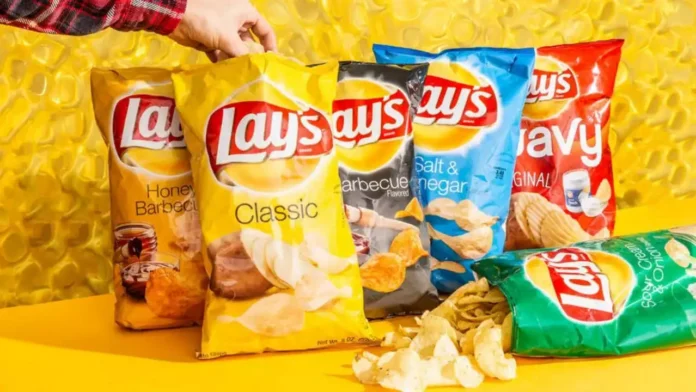PepsiCo India has initiated trials aimed at substituting palm oil and palmolein with a combination of sunflower oil and palmolein in Lay’s, the leading potato chip brand in the country. This move comes amid concerns over the utilization of palm oil, a cheaper but less healthy ingredient, in packaged foods across India.
In the United States, PepsiCo, the largest market for the company, employs “heart-healthy” oils like sunflower, corn, and canola oil for Lay’s snacks and beverages. On its U.S. website, PepsiCo states, “Our chips are cooked in oils that are considered heart-healthy.” They further explain, “Sunflower, corn, and canola oils are rich in beneficial mono- and polyunsaturated fats, which can aid in reducing LDL ‘bad’ cholesterol and maintaining HDL ‘good’ cholesterol levels as part of a controlled-calorie diet.”
According to a spokesperson from PepsiCo India, conducting trials with this blend in certain products positions the company as “one of the few players in the food industry in India” to undertake such a initiative.
Continue Exploring: PepsiCo India diversifies Lay’s portfolio with launch of new sub-brand ‘Shapez’
Palmolein, derived from palm oil through a refining process, is a liquid fraction, while palm oil itself is in a semi-solid state, both sourced from the oil palm fruit.
The Indian division is also striving to decrease the sodium content in its snacks to below 1.3 mg per calorie by 2025, as stated by the person.
Numerous packaged food brands in India, spanning from salty snacks and biscuits to chocolates, noodles, breads, and ice cream, utilize palm oil due to its significantly lower cost compared to sunflower or soybean oil.
The starting price for Lay’s classic salted chips in India is INR 10, one of the lowest prices for the global brand.
Packaged food companies, particularly multinational corporations, have come under criticism from nutritionists, health advocates, and social media influencers. They have accused these companies of employing varied, and often cheaper or less nutritious, ingredients in their packaged foods in developing nations compared to those used in the US and Europe.
Last week, Nestle India announced its endeavor to develop a no-added-sugar variant of its infant food Cerelac. This decision comes amidst recent controversy surrounding the company’s use of higher levels of added sugar in Asian and African countries. The issue gained attention following a report released by the Swiss investigative organization, the Public Eye, and the International Baby Food Action Network. The report revealed that Cerelac contained nearly 3 grams of sugar per serving in India. It highlighted the presence of added sugar in Nestle’s infant foods in low-and-middle income countries like India, while indicating its absence in developed markets such as the UK, Germany, Switzerland, and certain other European countries.
Continue Exploring: Nestle faces regulatory heat as FSSAI launches probe into Cerelac sugar controversy
Besides Lay’s, PepsiCo India’s food range encompasses Doritos, Kurkure, and Quaker. A spokesperson for the company stated that PepsiCo has established a target to ensure that by 2025, at least three-fourths of its food portfolio volume will contain no more than 1.3 milligrams of sodium per calorie.
He added, “We are steadily advancing towards achieving this objective.”
Additionally, he mentioned that the company employs varying recipes for foods or beverages across different countries, taking into account local preferences, manufacturing capabilities, ingredient availability, and market dynamics. He emphasized that the ingredients listed on all products enable consumers to make informed choices.
Last month, Influencer Revant Himantsingka shared on X about “foreign companies resorting to cheaper ingredients in India” to facilitate sales at lower price points. Previously, he had raised concerns about the high sugar content in Mondelez’s product Bournvita, prompting the company to subsequently reduce the quantity.
India largely imports palm oil from Malaysia, Indonesia, and Thailand. According to research platform Statista, the country’s palm oil consumption reached 8.9 million metric tonnes in FY23. India holds the title of the largest global importer of palm oil, with a significant portion of imports originating from Indonesia. International trade data from TrendEconomy in 2022 indicates that India constituted 23% of worldwide imports of palm oil and its derivatives, with China following at 11.4%, Pakistan at 7.47%, and the US at 4.75%.
Continue Exploring: Lay’s gets a desi twist: AI imagines a chip lineup featuring Dhokla, Chole Bhature, and More





